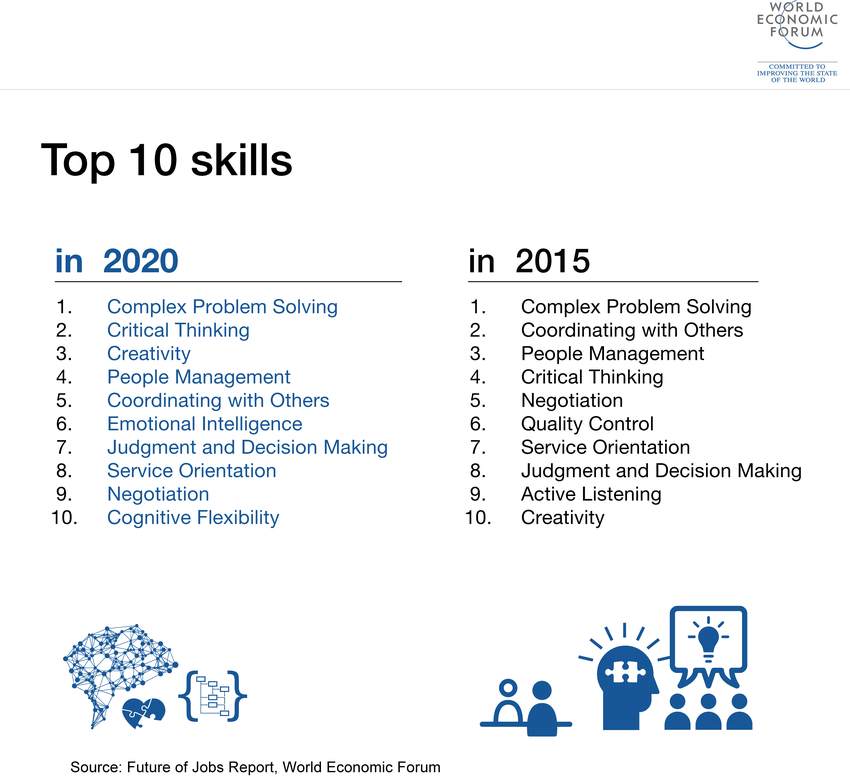10 competencies of employees that guarantee successful remote work
Written by: Ivana Turan, HR Consultant for Assessment @Assert
The business world is like a living being that is constantly changing and adapting under the influence of various internal and external factors. People who deal with the assessment of competences are witnesses who can confirm that, along with these changes, comes a modification of competencies that employees need to do their job successfully. The employee profile that we were yesterday looking for, today may no longer fit our needs. Some competencies are indeed “evergreen” and at the top of the desirable qualities list for years, but the final list changes and adjusts over time, so we can never be sure what the future holds.
For example, the research of the World Economic Forum states that a successful person in 2020 has an analytical, critical, flexible, and creative way of thinking, as well as emotional intelligence skills. We are witnessing the COVID-19 crisis which creates the need to review and adjust the ideal employee profile in 2020. As a result of the pandemic, many companies implemented mandatory remote work and many employees have faced a new type of work environment. We can ask ourselves: if an employee already successfully works on the position, he/she certainly has developed, more or less, key competencies for that job, right? Probably, but as the work environment is one of the factors that can significantly affect the achievement and success, there comes a question what are the qualities that a worker should possess to be successful in remote work?

The Assert expert team brings you an overview of competencies that are crucial for the success of employees who work from home.
#1 Self-motivation. Remote employees are often left to make decisions and organize work by themselves, so drive for achievement and internal motivation are crucial for daily functioning.
#2 Reliability. We need reliable employees and associates in every job, but this need is even more pronounced in remote team case. In the situation of isolation and uncertainty, such as in the current health crisis, people’s sense of control is shaken and thus reliable associates and colleagues are important as a factor of stability and to support us.
#3 Discipline. It can also be observed through emotional intelligence, which refers to managing oneself, one’s emotions and time. Considering remote employees are often partially or completely deprived of supervision by superiors, self-discipline is the quality necessary for their success.
#4 Communication skills. Clear and meaningful transmission of messages is crucial for everyone who works from home, especially in written communication. Communication is significantly more difficult during physical separation – especially due to the lack of non-verbal signs of communication.
#5 Taking initiative. During the work from home, the employee doesn’t have the opportunity to get advice from colleagues, detailed instructions on the next steps, or access to all resources at any time. Therefore, to successfully overcome everyday problems it is necessary for a person to be proactive, and to initiate new and improved processes and solutions on their own.
#6 Curiosity. A successful remote employee avoids the status quo and constantly learns new things. Curious employees will adapt more quickly to the new work environment and be more proactive in learning the new tools and technologies needed for remote work.
#7 Flexibility. New conditions may come from a client, superior, colleague, be the result of a personal action of the employee, or the consequence of unpredictable circumstances, such as the current health crisis. Regardless of the source of change, a successful remote worker needs to quickly adapt to new conditions, without compromising the integrity of projects and work tasks. Flexible and adaptable employees are more often resilient to stress.
#8 Self-efficacy. An employee who believes in his/her ability to deliver a product or service of the highest quality has a potential for efficient remote work. When an employee works alone from home and without direct supervision, it is a great advantage to be introspective, confident about own capacities, but also to be able to recognize when to ask for help.
#9 Empathy. Virtual meetings with colleagues and clients require an increased degree of empathy in participants, to hear not only what is said but also the mood behind these words. In this way, a person can achieve greater success, especially in working with people. Empathy is an aspect of emotional intelligence that includes the ability to understand and manage one’s own and others’ emotions.
#10 Focus. An efficient remote employee knows how to distinguish the essential from the irrelevant, and to focus attention on priority tasks. He/she can organize tasks according to the current focus capacity and is aware that this capacity varies during the day.
What personality traits has to do with it?
Conscientiousness – desirable competencies such as self-motivation, discipline, and organization skills are conditioned by this trait.
Extraversion – extroverted remote employees more often encourage online communication and relationships with colleagues, which strengthens the morale and motivation of the whole team.
Openness to experience – intellectual curiosity, broad interests, and openness to change are desirable qualities for remote workers.
Emotional stability – is the basis of successful coping with stress and is generally related to greater resilience, thus helps to cope with the challenges of remote work.
Agreeableness– contributes to the development of quality relationships with colleagues and trust in the team, which is especially important for remote teams.
The mentioned competencies are not the final product, and we can work on their development. Of great importance are specific actions that the employer takes to maintain and improve the motivation and engagement of remote employees.
Only with accurately identified and assessed key competencies for remote work, we can ensure successful remote individuals and teams.
How Assert do it? We always use objective assessment of capacity and potentials and tools with high predictive power. Our choice is Harrison Assessments, predictive analytics based on the assessment of personality and motivation, more precisely on the assessment of behavior preferences. It is a one-solution instrument that provides us with a measurement of all necessary characteristics and provides information that enables human resource decisions based on reliable data. It is desirable for the employer to determine which employees already have the ideal profile for remote work and who need additional development and support. That is why informative tools such as Harrison Assessments are the best choice, because they provide an overview of the current strengths of a person and room for development at the same time. In a crisis such as the current one, we have the great benefit from reports on employee behavior in unpredictable and stressful circumstances, and detailed Paradox Analysis within Harrison Assessments provides us that.
The crisis will pass, but remote work will remain a desirable benefit for employees and will be more present in modern business. Changes do not wait for anyone. Our adaptability is a key element that will bring us success in the future. We need to be ready. Maybe the future will be like in Hollywood science fiction movies, maybe we will be surrounded by robots or we won’t need roads because we will drive flying cars … However, even if we don’t need roads for a drive, it would be great to have a road map to the destination, right?
Ivana Turan, HR Consultant @Assert
Ivana is a master psychologist with experience in the HR field, including recruitment, assessment, and HR administration. In 2018, she joined the ManpowerGroup company in the position of Team Support Consultant, with the primary duties of recruitment and selection of candidates. According to interests, she specializes in assessment projects and works on creating and implementing assessments. As a member of the assessment team, in 2020 she joins Assert. She is certified in international assessment methodologies such as Harrison Assessments, Great People Inside, and Revelian.
